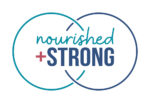Competition day fuel is a delicate balance of having enough energy to sustain your workout without causing a digestive emergency because you’ve overdone it. Regardless of how many events your competition has, the nutrition basics are the same.
In this post, we’re highlighting:
-
Carbohydrates
-
Protein
-
Fats
-
Water + Hydration
It’s important to mention that adequate fuel is first priority. If your macros are in a good ratio but you are way under eating, good luck competing to the best of your ability and avoiding injury. Competition day is all about having fuel available for your body to use for bursts of 10-20 minutes, but over the course of several hours. Because of this time frame, we also need to consider replenishing this fuel as quickly as possible so that we are ready for the next event.
Carbohydrates: For moderate to high intensity sports (including CrossFit), carbohydrates are your friend. We store carbs as glycogen, which can be quickly broken down to glucose and used as fuel. Things to consider:
-
Spread your carbs throughout the day, planning the majority of them about 30 min to an hour before each event.
-
Make sure you aren’t eating too close to when you go- feeling too full and/or bloated are counterproductive.
-
Try to combine high and low glycemic carbs, such as oats and bananas, or sweet potato and dates (baby food is a delicious way to get in some good combinations).
-
‘Carb loading’ usually isn’t necessary for medium to high intensity sports, so long as you eat carbs before the event and spread throughout the day.
General recommendations:
-
Total, for the entire day, 3-5 g/kg should be sufficient. With some athletes, 5-8 g/kg may be appropriate. Exact amounts depend on the number of WODs, how long the WODs are, as well as the individual. Example: 155 lbs/70 kg person would need 210-350g carbs (3-5 g/kg) or 350-550 carbs (5-8 g/kg).
-
About an hour before the WOD, consume 1-2 g/kg of carbohydrates to top up glycogen stores. NOTE: CF competition WODs are usually only 10-20 minutes long; this amount should be sufficient. Example: 155 lbs/70 kg person would need about 70-140 g of CHO.
-
After the WOD, <1 g/kg of carbohydrate is recommended to replenish what was used.
-
NOTE: On competition day, this post-WOD refuel may also be your pre-WOD top up for the next event.
-
If events are less than 30 min apart, you may not need more food in between every event. Listen to your body!
Protein: Most of us eat more protein than we actually need. Overall, protein recommendations are 1.2-1.7 g/kg per day. In our above example (155 lbs/70kg), our athlete would need 85-120 g/d. Furthermore, it is important to spread this throughout the day as our body can only use about 20-25 g at a time for muscle synthesis.
-
Post WOD recommendations: 0.25-0.3 g/kg WITH your carbs. Example: 17-21 g protein with our approximately 70 g of carbs.
-
You do NOT need a protein shake after every event, unless maybe if every event is max effort AMRAP with a heavy barbell (a.k.a. not likely).
-
You can use plant and animal sources, powders or whole food sources- use what you are used to (more about this to come in the next video!).
Fats: First of all, you need fat! This is where you get the rest of the energy that your body needs. Focus on sources of healthy fats, like avocados, olive oil, nuts, and seeds. However, fats do slow down your digestion, as does fiber. Considering this, fat + fiber can slow down the assimilation of carbs and protein into the body pre- and post- workout.
-
Try to eat the majority of your fats 2-3 hours before or after your workouts.
-
At breakfast before you get to the event, and at dinner after everything is over.
-
If you have a longer break between events (~2 hours), this may be a good time to have some nuts, or that chocolate chip cookie dough Larabar you’ve been eyeballing all morning…
Water: Y’all, drink your water. Drink your water all day. Drink your water for the two days leading up to the event. Drink your water everyday. Even if it is cold and you don’t end up sweating all that much, drink your water. Preventing dehydration is the name of the game, drink early and often.
-
Most people need between 80-120 oz. I usually suggest striving to work up to 80 oz and adjust from there if you still feel you need more.
-
If you produce a lot of sweat, work out in a hot climate outdoors or without AC (Hello CrossFit in the summer), or concerned about your hydration status — weigh yourself before and after the competition. Re-hydrate with 20-24oz per lb lost.
Key Takeaways:
-
As I always preach, listen to your body. If you are not hungry, and have energy, you may not need to eat. CF competitions are hard since the workouts are intense, but usually short. You don’t HAVE to eat after every event, but if you feel like you need to, try to use the above guidelines to get you started and see what feels best.
-
DON’T STRESS! These are some general guidelines to keep your energy levels high during the competition for performance. Following these exactly will not make you Mat Frasier. You have trained, you are prepared, you will rock it!
-
Don’t eat things you aren’t used to just to follow these guidelines, especially if you have a sensitive stomach and tend to have bloating. Go with foods you know your body handles well.
-
Drink water, every damn day. If this is something you struggle with, set a goal to crush at least 8oz of water before your morning coffee — once you accomplish that, up to to 16oz — your adrenals will thank you and you’ll find hitting your water goal is easier.
Competition Day Snack Ideas:
-
Baby food: don’t knock it till you try it. There are all of delicious combinations and the puree texture can be easy to digest.
-
Fruit: bananas, apples, oranges, berries, grapes — these will be your higher glycemic, quick sources of carbs
-
Starches: Sweet potato, quinoa, whole grains — these will be your lower glycemic, slower digesting carbs.
-
Proteins: Jerky, Roasted chickpeas (good protein + carb combo), Tofu, Protein powders (whey, casein, plant-based), tuna packet, hard boiled eggs/egg whites
-
Fruit and nut bars (Larabars, Rx Bars) – a great combination food, but do tend to be high in fats because of the nuts so be cautious. Nuts/nut butters, Avocado, Olives
Information taken from the Academy of Nutrition and Dietetics Sports Nutrition Handbook (1).
References
1. Karpinski C, Rosenbloom C. Sports Nutrition: A Handbook for Professionals. 2017



